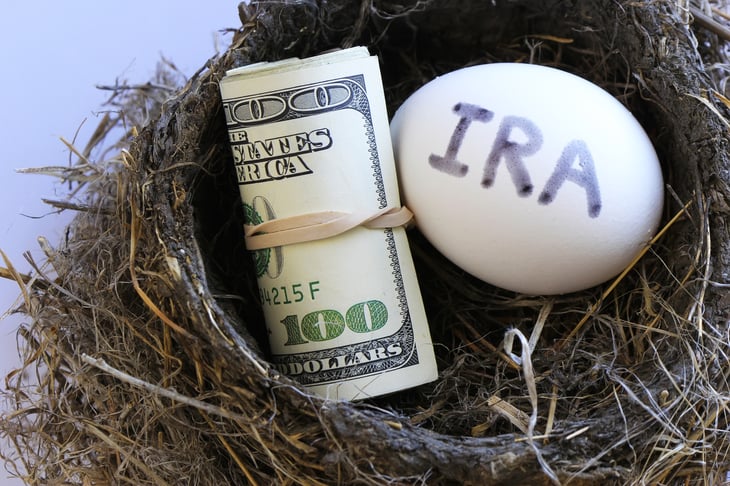
This story originally appeared on NewRetirement.
We all know that we need to save for retirement, but that is hard. However, it might be even harder to figure out how to invest for retirement.
Investing requires some level of expertise and a way of thinking about money that is not innate for most people. Furthermore, the way you need to think about investing definitely changes as you age.
How to invest for retirement is a very complicated question to answer. However, we hope the following will help you feel prepared and comfortable to take on any of the unexpected events that life throws at you.
Following are several simple tips for how to invest money for retirement and set you up for success.
1. Set goals

Outcomes are almost always better when you set a goal — retirement investing is no exception.
When you are deciding how to invest your money, you should think about the following:
- Do you want to earn a specific rate of return?
- Are you trying to guarantee that return?
- Is it important for you to protect the original investment amount? Or will you be okay if you lose some money?
- What is your time horizon? Will the money stay invested for one year or 30?
- Will you be withdrawing money from the account? How will those withdrawals impact your other goals?
When thinking about investing outside of an IRA or 401(k), you need to have a plan. “You need to recognize the strategy of getting rich vs. staying rich,” says Christopher Girbes-Pierce, founder and CEO of Enlightened Wealth Management.
This means that you need to evaluate where you are in life. When you are in your working years, you are building wealth by concentrated risks, like working a job or owning a business, but once you get into your retirement years, it’s all about diversifying your investments to keep your wealth, Girbes-Pierce explains.
Before setting a goal for your investments, you might want to first find out how much you need in retirement savings. The NewRetirement retirement calculator is an easy-to-use tool that gives you immediate detailed answers.
2. Match your investment to your goal

Depending on what your goals are, different investment types will be better or worse for you.
- Stocks: Stocks can be risky. Investing in stocks can put your original investment amount at risk. However, stocks can offer the highest rates of return.
- Mutual funds: Mutual funds are a single investment into a range of different companies or investment types. Funds are considered less risky than stocks while still offering a better rate of return.
- Bonds: Bonds can offer a guaranteed rate of return, making them appealing if you need or want security.
- Annuities: Annuities guarantee your income. In most cases, you know exactly what the outcome will be with an annuity.
You can learn more about these traditional retirement investments.
3. Diversify

Investing can be like everything else in life — we want it all, and we want it right now. Most of us want the best possible return on investment with the least possible risk.
Diversifying your portfolio is a great way to achieve that seemingly impossible objective.
Diversification refers to the practice of investing some of your money one way and other parts in other ways to give you the possibility of growth while also protecting you from risk. Diversification could be defined as the practice of not putting all of your eggs in one basket. By spreading your investments, you reduce the chance of losing money.
Want more information? Explore asset allocation.
4. Keep costs low

Once you have made the decision to diversify your retirement investments, Girbes-Pierce shares that it’s important to stay away from high-cost investments, such as certain types of annuities and actively managed mutual funds.
“The charges that you will incur from just one year of managing a portfolio with an expensive upkeep will eat away at your overall portfolio,” Girbes-Pierce says.
This also applies to investments that are in taxable accounts. If you aren’t maxed out on your IRA and have real estate investments, for example, Girbes-Pierce suggests keeping those funds in your IRA. This way, you won’t pay taxes on them like you would be if you put that investment into a taxable account.
If you aren’t sure what you are paying in investment fees, find out.
5. Be aware of your access

Another aspect to be aware of when figuring out how to invest for retirement is how much access you will have to your funds.
“You may get to a point where you want to go on a big vacation and need to take some of your funds out of an annuity, but then when you try to take it out you’re charged a penalty fee,” says Girbes-Pierce.
Many people aren’t aware of these charges when they sign the papers. Be sure to get an answer before you agree to anything. You have the right to know how much access you have to your funds without penalties at any given time, Girbes-Pierce reminds.
6. Be cautious

You may have a child or grandchild come to you with a brilliant business proposal asking for an investment, but it’s never a good idea to dip into your retirement account to fund these sorts of projects, Girbes-Pierce explains.
“This kind of behavior is very speculative and I consider it gambling, which is fun and exciting, but most people probably don’t want to do that with their retirement money,” says Girbes-Pierce. “People can end up getting into a lot of trouble this way.”





Add a Comment
Our Policy: We welcome relevant and respectful comments in order to foster healthy and informative discussions. All other comments may be removed. Comments with links are automatically held for moderation.